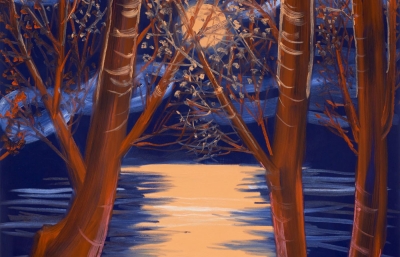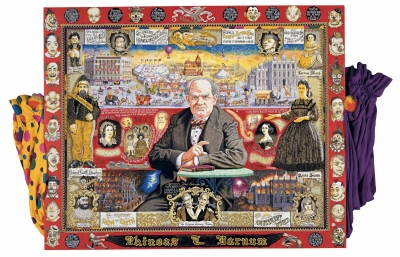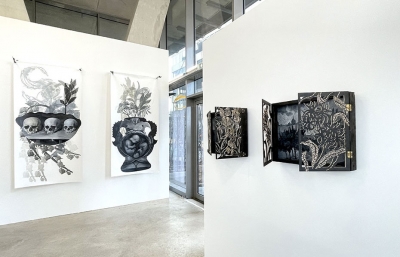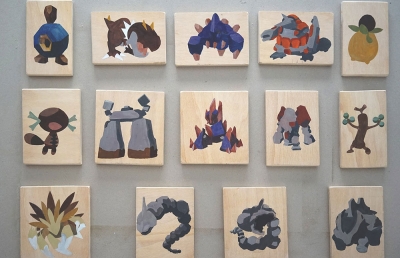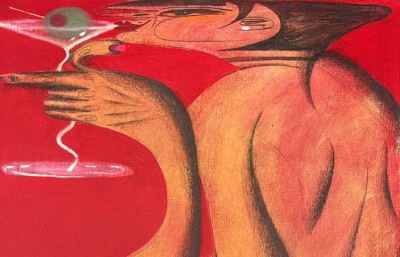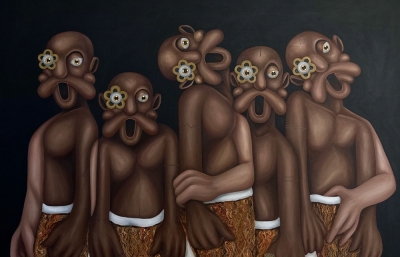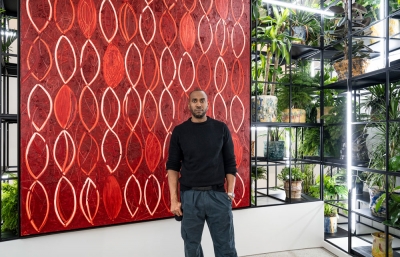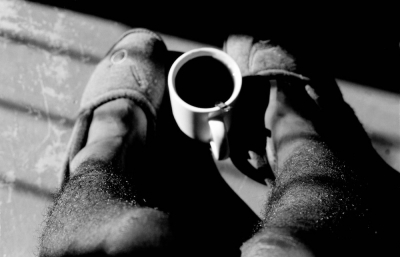GRIMM is pleased to announce The Holiday Park, a solo exhibition of new paintings and drawings by British artist Caroline Walker. The exhibition is on view at the New York gallery from March 28 to May 3, 2025.

The Holiday Park is a new body of work by Caroline Walker that takes the activity led, family-friendly holiday park as its setting. A setting that is artificial yet familiar, posed for the purpose of elevating the leisure of guests and minimising their perception of labour. This environment, reproduced in the painted details highlights its confection, from the artificial glow of the amusement arcade to the uniformly uniformed staff, the wave patterned swimming pool tiles and the managed landscape. Adopting a more autobiographical approach to image-making that has become synonymous with the artist’s practice in recent years, the series looks to highlight the relationship between work and leisure, drawing out the sociopolitical conditions that construct each mode.
After a family break at one such resort in 2023, Walker recognised the potential in this microcosm. This highly constructed environment contained activities that had been the subjects of recent bodies of work: housekeeping, catering and the nurture and care of young children, while also alluding to the staged scenes that characterized earlier series. In collaboration with Parkdean Resorts, Walker and her family spent a week in July 2024 at two of their locations in the South of England. During this time she photographed women working in diverse roles across the site. Set against the branded backdrop of the resort, the resulting paintings document both her family’s experience as holidaymakers and serve as a record of the smoothly choreographed work of the women who made their holiday possible.
Tracing the artist’s enduring preoccupation with the rarely seen sites of women’s affective labour, each female subject appears to the viewer unaware that they are being observed. Whether depicted collecting children’s inflatable pool toys, performing as part of the evening entertainment or cleaning holiday cabins before the arrival of new guests, Walker’s subjects are engaged wholly with the job in hand. Rendered in vivid colour, the women’s hands are always busy. Their eyes never meet our gaze and in-so-doing they resist interpretation and the imposition of a singular narrative.

